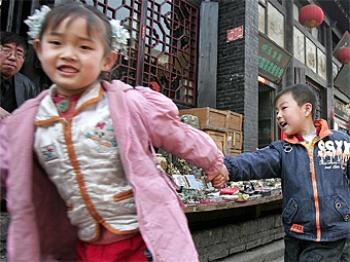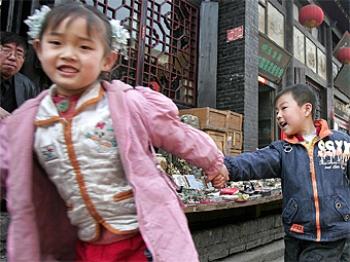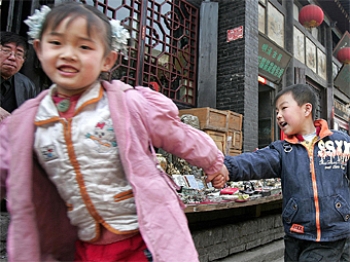China’s ‘Missing’ Girls
Imagine a family abandoning a three-year-old girl by a river because a boy has just been born.

Children hold hands while walking along a street in the ancient city of Pingyao, in northern China's Shanxi province. China's skewed sex ratio has been one consequence of its one-child policy, as many couples, particularly in rural areas, prefer a boy and Frederic J. Brown/AFP/Getty Images
|Updated:


